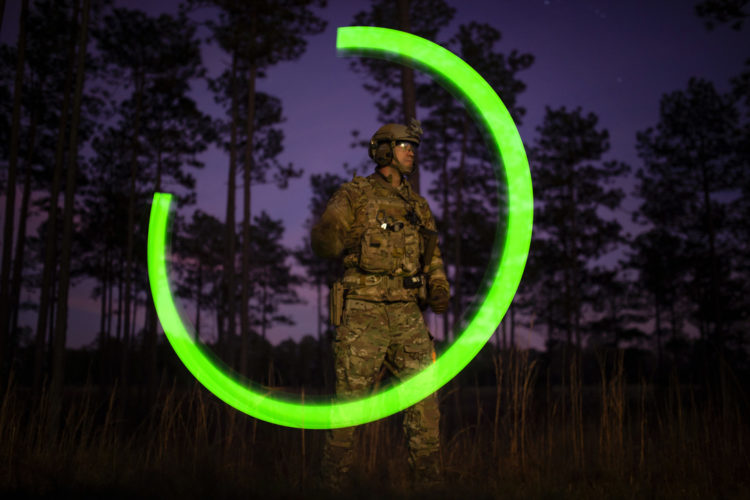During the International Defense Exhibition and Conference (IDEX) 2019, which was held in Abu Dhabi, United Arab Emirates (UAE), the UAE government spent close to $5.4 billion on weapons and military hardware contracts.
According to reports from the UAE government, the deals that were signed involved firms from across to globe, including Chinese, Russian, French, British, Turkish, Pakistani, South African, German, and American companies. The clear winners in terms of contract value were the U.S. firms Lockheed Martin and Raytheon, which signed a deal for the Patriot air defense system worth $1.9 billion.
Before the sale is approved, however, it must be cleared by the State Department, and by Congress, which has veto power over any arms deal involving U.S. companies. Realistically, the deal won’t face any problems other than taking more time than the UAE government would want. UAE diplomats and military leaders have repeatedly wailed about the protracted process for approving weapons and ammunition purchases. They have requested that Washington and Abu Dhabi sign an agreement that would expedite future contracts. There are two ways to achieve that: either the UAE must be designated as a Major Non-NATO Ally (MNNA), or the UAE must be designated as a key defense partner.
UAE representatives assert the country would like to work out a mechanism with the United States under which requests for munitions and arms purchases could receive expedited U.S. consideration.
There could be a considerable benefit — as the UAE’s recent spending showcased — to pursue one of the above options. For example, there are a number of defense contracts the UAE government is involved in or considering, such as the F-16 program, the F-35 Joint Strike Fighter program, the High Mobility Artillery Rocket System (HIMARS) program, the Joint Direct Attack Munitions (JDAM) program, and the AH-64 Apache helicopter program.
Although some countries, most notably Germany, imposed a weapons sale ban on Saudi Arabia following the brutal murder of Saudi dissident journalist Jamal Khashoggi in the country’s consulate in Constantinople, UAE has remained intact.
A recent report by the Congressional Research Service (CRS) on the UAE stated that because of the Arab country’s “partnership with the United States, the UAE has enhanced its military capabilities to the point where it is increasingly asserting itself in the region, both militarily and politically.”
Alongside Saudi Arabia, the UAE is a buffer to Iran’s expansionist strategy in the region, a strategy that takes Iranian soldiers and covert operatives from Iraq to Yemen to Syria.
Already have an account? Sign In
Two ways to continue to read this article.
Subscribe
$1.99
every 4 weeks
- Unlimited access to all articles
- Support independent journalism
- Ad-free reading experience
Subscribe Now
Recurring Monthly. Cancel Anytime.
During the International Defense Exhibition and Conference (IDEX) 2019, which was held in Abu Dhabi, United Arab Emirates (UAE), the UAE government spent close to $5.4 billion on weapons and military hardware contracts.
According to reports from the UAE government, the deals that were signed involved firms from across to globe, including Chinese, Russian, French, British, Turkish, Pakistani, South African, German, and American companies. The clear winners in terms of contract value were the U.S. firms Lockheed Martin and Raytheon, which signed a deal for the Patriot air defense system worth $1.9 billion.
Before the sale is approved, however, it must be cleared by the State Department, and by Congress, which has veto power over any arms deal involving U.S. companies. Realistically, the deal won’t face any problems other than taking more time than the UAE government would want. UAE diplomats and military leaders have repeatedly wailed about the protracted process for approving weapons and ammunition purchases. They have requested that Washington and Abu Dhabi sign an agreement that would expedite future contracts. There are two ways to achieve that: either the UAE must be designated as a Major Non-NATO Ally (MNNA), or the UAE must be designated as a key defense partner.
UAE representatives assert the country would like to work out a mechanism with the United States under which requests for munitions and arms purchases could receive expedited U.S. consideration.
There could be a considerable benefit — as the UAE’s recent spending showcased — to pursue one of the above options. For example, there are a number of defense contracts the UAE government is involved in or considering, such as the F-16 program, the F-35 Joint Strike Fighter program, the High Mobility Artillery Rocket System (HIMARS) program, the Joint Direct Attack Munitions (JDAM) program, and the AH-64 Apache helicopter program.
Although some countries, most notably Germany, imposed a weapons sale ban on Saudi Arabia following the brutal murder of Saudi dissident journalist Jamal Khashoggi in the country’s consulate in Constantinople, UAE has remained intact.
A recent report by the Congressional Research Service (CRS) on the UAE stated that because of the Arab country’s “partnership with the United States, the UAE has enhanced its military capabilities to the point where it is increasingly asserting itself in the region, both militarily and politically.”
Alongside Saudi Arabia, the UAE is a buffer to Iran’s expansionist strategy in the region, a strategy that takes Iranian soldiers and covert operatives from Iraq to Yemen to Syria.










COMMENTS